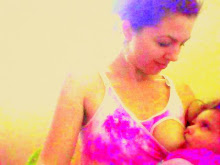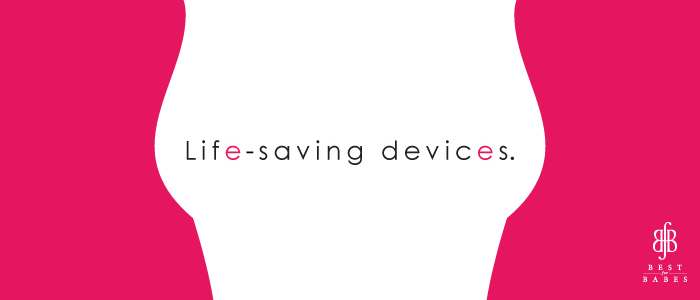This was recently written for a class....
Becoming an elementary school teacher requires evaluating ones own educational philosophies constantly over the course of ones career. Being a teacher is a huge responsibility to the children we have in our class and to the communities we let the children fly free in. Our task as teachers should be to inspire creativity and encourage children to take an active interest in the world around them. We must remember that these children will grow up to be our future leaders. Teachers should help students learn the tools they will need to be successful in society.
Teaching is about inspiring others and learning about oneself in the process. To inspire learning in children it is important to offer opportunities for the students to lead their learning. These opportunities should include creative and hands-on activities in which students can explore real-world knowledge and put them into action. Fostering community involvement and civic duty in early years will support students in developing a sense of themselves in their community and help them to be more responsible in their actions. As teachers, we can learn from our students what is important to them and guide them in positive directions.
Students have an innate curiosity that we as teachers should embrace. Students want to have fun during learning, many students would rather be working on projects, experiments, and other activities than listen to a teacher stand in front of the class and lecture. Students are more interested in their learning if they can be allowed to participate in the subject matter they are studying. Students are more productive if they are fed, rested, and relaxed. Students believe they are successful when they can see that their work is appreciated and are given opportunities to share what they enjoy about their work. Students can help teach others by exhibiting their knowledge.
Knowledge changes with time. We gain knowledge from others and from trial and error. People who are given opportunities to explore other world views will have a better understanding of their own perspective and learn to respect other views. Community, religion, ethnicity, and the resources available influence ones knowledge. Knowledge is not best put to use to control others but to guide ones way of life and ones own interaction with the world around oneself.
Exposing our minds to many ideas and different ways of thinking is important. When this is done, students have a better chance of utilizing critical thinking skills. Students can explore the various aspects of environmental and social justice issues. These concepts can be integrated into science, math, social studies, english, music, and art. Students will be better able to understand the world around them and the people in this world. It would also do our students good to explore back to basics, like identifying local edible plants, land navigation, simple recipes, homeopathic natural remedies, creating by hand, and survival techniques.
The future of the planet is of immense concern to me. I learned as an undergraduate that one is more effective in making change if one can dedicate themselves to a cause and can see more positive change if they work locally. My educational philosophy stems from the core of act locally and think globally. I want students to explore the beauty of community through student-based action. It is never too early to introduce ideas of compassion, action, and responsibility. Projects the children could get involved with are a community garden, reading programs with elders and peers, the local food bank, murals, organizations that help the house-less, coastal cleanups, and park beautification days. I believe that even with structure given by the federal, state, and local government on what curriculum should be taught, there are many roads to reaching the same foundations. As a teacher the ideas of my students should be integrated into lessons. In doing this, I will keep on learning and also encourage the children to care more about school and the world around them. Round table discussions and constant feedback are better at assessing my students success than standardized testing. Even so, I think that students should be able to perform on standardized testing. Equipping children with the tools on how to comply with the requirements set forth by the government is also very important. The educational philosophies that I most relate to are Progressivism and Postmodernism. Labaree (2005) states about pedagogical Progressivism or constructivism:
“It means basing instruction on the needs, interests and developmental stage of the child; it means teaching students the skills they need in order to learn any subject, instead of focusing on transmitting a particular subject; it means promoting discovery and self-directed learning by the student through active engagement; it means having students work on projects that express student purposes and that integrate the disciplines around socially relevant themes; and it means promoting values of community, cooperation, tolerance, justice and democratic equality.”
In addition to being active in one's community it is important to examine how our society has come to have certain issues. When discussing these topics teachers can take into account age appropriateness as well as to the depth in which the students are interested. In the text Introduction to Teaching the authors define, on page 221, Postmodernism as “an educational philosophy that contends that many of the institutions in our society, including schools, are used by those in power to control and marginalize those who lack power.” (Kauchak and Eggen 2005) In honor of the people of our past and present I think it is important to have resources available to the students which let them learn about the struggles of such people as Emma Goldman, Martin Luther King Jr, Frida Kahlo, Mahatma Gandhi, Julia Butterfly, Cesar Chavez, and many more.
I want nothing more than to influence positive change in this world. My philosophies as a teacher will evolve over time. One of my goals is to continue to grow and change with the needs of the students and society. Children deserve the chance to learn in an environment that fosters their natural curiosity and gives them a voice when, in fact, they may not have much of one anywhere else. What we do does matter and the future leaders need to know that they can be a part of positive change in their communities.
References:
Karen L Anderson, Dean M Martin, & Ellen E Faszewski. (2006). Unlocking the Power of Observation. Science and Children, 44(1), 32-35. Retrieved January 18, 2010, from ProQuest Education Journals. (Document ID: 1124970581).
Labaree, D. (2005). Progressivism, schools and schools of education: An American romance. Paedagogica Historica, 41(1/2), 275-288. doi:10.1080/0030923042000335583.
EBOOK COLLECTION: Kauchak, P. & Eggen, P. (2005). Introduction to teaching: Becoming a professional (2nd ed.). Upper Saddle River, NJ: Pearson Education.











No comments:
Post a Comment